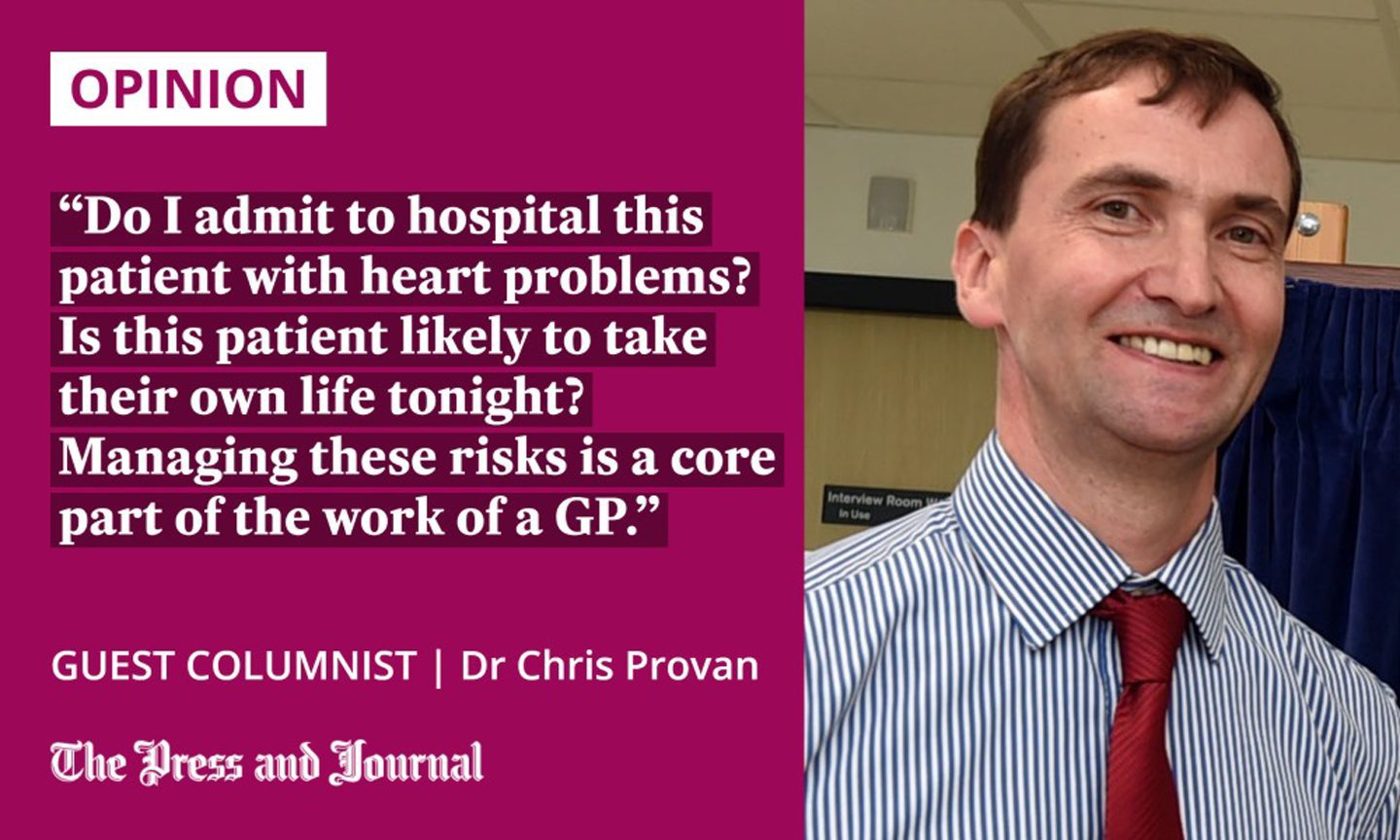It’s 7am; I’ve just arrived at my practice in Aberdeen, and I’m preparing for 12 hours of work providing care for 40 patients before the day’s end.
GPs are trained to manage such a variety of problems – from infected toes to complex heart problems – with a growing number of patients now presenting with a mental health crisis.
As I’m about to take post as chair of the Royal College of GPs Scotland, I’ve been thinking about how much general practice has changed in the 30 years I’ve been practising.
Today, a practice is so much more than just a GP or two and a receptionist. I now work alongside a fantastic multi-disciplinary team: together we comprise of administrative staff, advanced nurse practitioners, practice nurses, pharmacists, physiotherapists, midwives, substance misuse counsellors, link workers, psychologists and GPs, each of us working alongside one another to address our patient’s needs.
By the time our phone lines open at 8.30am, I’ve already looked at blood test and other results, discharge letters from the hospital and reviewed any contacts from the out-of-hours service.

The old-fashioned term “medical receptionist” does not do justice to the skills of our care navigation staff. Every morning they brace for the inevitable rush of calls, usually several hundred a day. Just the other week, between phone calls and in-person presentations, our practice dealt with 408 contacts in a single day.
At times, it can be difficult to spend as much time with patients as we would like to – there is always another patient waiting to be seen. We have an on-the-day triage system to try to prioritise patients based on greatest need. The narrative from frustrated patients that our care navigators are acting as “gatekeepers” is disheartening – the whole practice only wants to provide the best care for our patients, but demand is overwhelming.
The patients we are treating also have more complex needs than in the past, part of which is due to their increased age. When I was a trainee, 65 was considered an older patient, but now we treat many more patients in their 80s. Pressures on hospitals, long waiting list times, and backlogs as a result of the Covid-19 pandemic mean that, often, their care falls back to general practice, placing greater and greater pressures on GPs and practice teams. We are also seeing the impact of the cost-of-living crisis, especially on patients’ mental health.
The work is simply never ending
At the end of the day, I am often physically and emotionally exhausted. Some of the decisions I have made during the day could have life or death implications. Do I admit to hospital this patient with heart problems? Is this patient likely to take their own life tonight? Managing these risks is a core part of the work of a GP.
When I’ve finally seen my last patient of the day, I generally spend a few hours catching up on paperwork and clinical results, but there often comes a point where I say to myself: “Stop, you are too tired, you are in danger of making a mistake.”
I could very easily stay in the practice in perpetuity; the work is simply never ending. It is the intensity of the working day during which we are making literally hundreds of medical decisions that leads many GPs to work less than full time, or to work in other medical jobs as well as frontline GP. Without doing this, many GPs would have burned out a long time ago, or had no sort of life with their families.
When it’s resourced correctly, general practice works for patients and is the key to delivering much of our shared ambitions for a healthy and happy Scotland. I love being a GP, and would choose no other career. I am sustained and fulfilled by the goodwill and thanks I receive from patients.
What we need right now is a national conversation for which patients, health workers and policymakers come together
There is much to be done to put general practice back on a sustainable footing, however, and the Royal College of GPs is working hard on solutions. What we need right now is a national conversation for which patients, health workers and policymakers come together to discuss how we can best meet Scotland’s health needs, considering current pressures and the resources available to us.
I often say GPs have “boiled frog syndrome” – the heat on general practice has risen slowly and steadily, and only now are we realising that the water is boiling.
Dr Chris Provan is chair elect of the Royal College of General Practitioners Scotland

